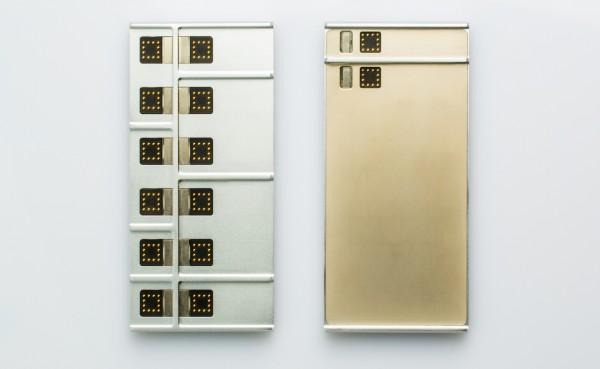Project Ara Price A Work-In-Progress Google Concedes
Google may be ramping up toward a commercial launch of Project Ara, but we still don't know how much a modular smartphone will actually cost. Questioned about just what Google sees as the selling price for the handset with its interchangeable blocks for cameras, speakers, controls, and more, Project ATAP lead Regina Dugan admitted that right now it wasn't clear. There's "not one price, I think that's the whole point," Dugan suggested, saying that it would depend on what configuration of modules were initially selected. Beyond that, though, there's the promise of a far broader licensing scheme.
Asked whether the endo – the backbone of the Ara smartphone, into which each of the modules slot – would come in different sizes, Head of Project Ara Paul Eremenko said that Google only had one planned for the start, in the name of predictability.

"For the moment, we do intend to keep the endo as fixed size as possible," he said. "Tt's the thing in the middle, it ties everything together. For us, it's incredibly important to keep things consistent."
However, ATAP is already looking ahead to a time when Ara may be more broadly understood.
"In the long run," Eremenko continued, "I can see some sort of licensing scheme for third-party endos, with some sort of vigorous quality testing."

That could instantly begin to address concerns by some smartphone users that devices are getting larger whereas they would prefer them to be more hand-sized. A smaller endo would obviously accommodate fewer modules, though it might not mean less battery life: users could opt to slot in more than one battery pack, at the expense of something else like specialist sensors, a larger camera, or a speaker.

Google's initial intent is to make the entry price for Ara as low as possible, though the device you get for that will be relatively basic. ATAP has currently developed eleven modules, "most of which" work today Eremenko says, which will be used as reference designs.
Individual module pricing will likely depend on what third-party manufacturers decide is fair for each piece. However, ATAP is also looking at the possibility of organized aftermarket module sales and swaps, though the specifics of such a project have not been worked out.
